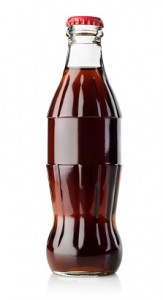 From Your Health Journal…..”An interesting story by Felicity Duncan for a web site I like called Money Web about sugar bans. This blog has discussed many times how a great start to lose weight is to watch liquid consumption. For many, 25-40% of an individuals diet is directly from liquid. Soda, juice, and flavored milks taste great, but add many unnecessary calories. Nothing wrong with drinking them once in a while if you like it, but moderation is the key. In big cities in the United States, local governments are trying to ban, restrict or limit ‘sugar’ filled soft drinks. The rationale behind these restrictions is that the average 500ml soft drink contains more than the recommended daily allowance of sugar – the American Heart Association recommends that women consume no more than 6 teaspoons of sugar a day (about 20g), and men no more than 9 (about 36g), but the average can of cool drink contains over 10 teaspoons of sugar (about 40g). Since Americans routinely “super-size” their drink orders because it’s cheap (usually the cost per millilitre is lower the bigger your drink is), advocates of the ban argue that, by keeping sodas small, it will reduce the amount of empty calories New Yorkers consume in liquid form. Please visit the Money Web site (link provided below) to read the complete article. I found it to be well written and informative. I will visit this site often, as they seem to have some great health stories.”
From Your Health Journal…..”An interesting story by Felicity Duncan for a web site I like called Money Web about sugar bans. This blog has discussed many times how a great start to lose weight is to watch liquid consumption. For many, 25-40% of an individuals diet is directly from liquid. Soda, juice, and flavored milks taste great, but add many unnecessary calories. Nothing wrong with drinking them once in a while if you like it, but moderation is the key. In big cities in the United States, local governments are trying to ban, restrict or limit ‘sugar’ filled soft drinks. The rationale behind these restrictions is that the average 500ml soft drink contains more than the recommended daily allowance of sugar – the American Heart Association recommends that women consume no more than 6 teaspoons of sugar a day (about 20g), and men no more than 9 (about 36g), but the average can of cool drink contains over 10 teaspoons of sugar (about 40g). Since Americans routinely “super-size” their drink orders because it’s cheap (usually the cost per millilitre is lower the bigger your drink is), advocates of the ban argue that, by keeping sodas small, it will reduce the amount of empty calories New Yorkers consume in liquid form. Please visit the Money Web site (link provided below) to read the complete article. I found it to be well written and informative. I will visit this site often, as they seem to have some great health stories.”
From the article…..
Moves to cut the sugar in soft drinks to curb obesity.
In the last few months, an interesting health controversy has been brewing in the United States – anti-obesity advocates and health lobbyists have been trying to get officials to ban or disincentivise high levels of sugar in soft drinks and other beverages, because they believe that the sweet stuff in drinkables is a key culprit in the rise of obesity and its associated health problems.
According to advocates of interventions, sugary drinks have a pernicious effect on waistlines. Many people consume lots of extra kilojoules every day in the form of sweetened beverages. In South Africa, for example, children consume large quantities of sweetened drinks; in one study among grade 4 and grade 7 kids in the Western Cape, learners consumed an average of 783ml of soft drinks per day. More generally, estimates put South Africans’ sugar consumption at about 31kgs per person per year (about 84g a day), about half of which comes in the form of sweetened beverages.
However, these beverages do not promote a feeling of fullness, so people don’t eat less to make up for the kilojoules they drink in the form of sugar. The result is that they end up taking in far too many kilojoules and piling on weight. In addition, the consumption of too much added sugar also promotes poor nutrition, increased levels of circulating blood fat, and tooth decay. The solution, say advocates of sugar bans in the US, is to force or persuade manufacturers to put less sugar in their products in the first place, and they have been taking various actions to see this achieved.
In an unusually bold move, a lobbying group has presented the US Food and Drug Administration (the body which regulates food labels and ingredients) with a petition signed by Harvard School of Public Health researchers, the Boston Public Health Commission, and others urging it to regulate the amount of sugar that is permitted in beverages. The petition is unlikely to succeed, but the fact that it was submitted highlights a growing momentum of advocacy around banning sweetened drinks.
Predictably enough, the whole brouhaha was kick-started in New York City when mayor Michael Bloomberg approved a citywide ban on large sugary drinks, including super-sized soft drinks and large, sweet frothy latte-style drinks. The ban, which comes into effect in a few months, will mean that fast food chains, coffee shops, and restaurants in NYC will not be allowed to sell sugary beverages in servings larger than 500ml.
To read the complete article…..Click here
